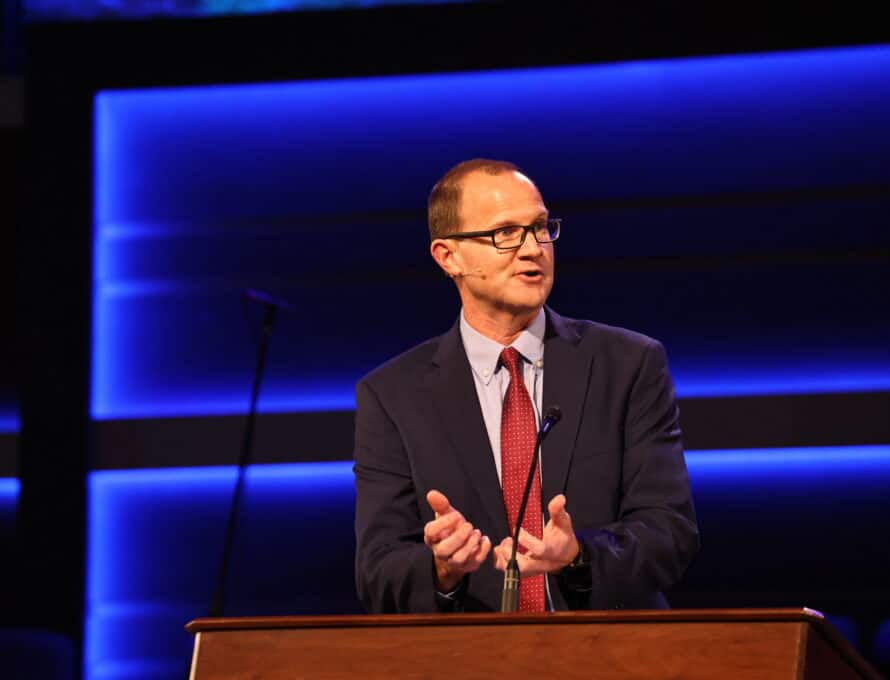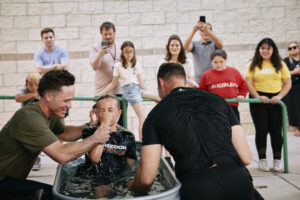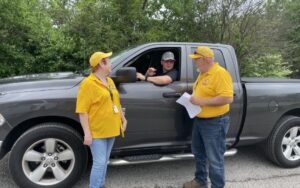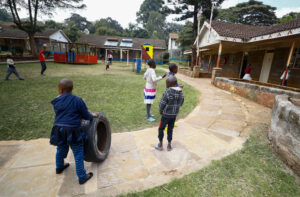
Editor’s note: Wes Fowler is the executive director of the Missouri Baptist Convention.
When the search committee for FBC Mayfield contacted me in December of 2010, one of my first requests was for a copy of the church budget. I wanted to see what the church members prioritized and what they valued. I wanted to evaluate how much was budgeted for internal matters, such as fellowships, versus how much was budgeted for evangelism and missions. I believe you can tell a lot about a church by looking at its budget.
FBC Mayfield has a long history of faithfulness. It’s where I was born and raised, where I heard the Gospel, where I responded to the Gospel, where I was baptized, and where I was discipled. So I wasn’t surprised at all by the budget. Funds were certainly allocated for internal matters, but a good portion of the budget was externally focused – something I was thankful for and excited to see! One observation, though, that quickly caught my attention was that the church’s Cooperative Program giving was just above 4 percent, an amount I thought was rather low.
During an early interview with the search committee, I inquired about Cooperative Program giving. Multiple explanations were provided as to why the percentage decreased through the years. One year, they had budget concerns, another year they decided to add a new staff member, and through the peaks and valleys of ministry, the emphasis on Cooperative Program giving simply lost priority. No one was necessarily against giving more to the Cooperative Program, but no one had an intentional and strategic plan to make it a priority. I believe this is a common experience for many churches.
So how did we move forward? First, I explained my foundational support for the Cooperative Program. I made it clear to the search committee that, if called to pastor the church, one of my first initiatives would be to increase Cooperative Program support. I certainly wouldn’t try to force the matter, but I would patiently and consistently lead in that direction.
No one on the search committee objected to my desire, and no one expressed concern – someone simply needed to develop and implement a plan.
Second, after being called to pastor FBC Mayfield, I immediately studied the budget, consulted and prayed with our finance team, and eventually asked the church to approve a budget with 6 percent of undesignated receipts going towards the Cooperative Program. It was a small but important change. In our context, a 2 percent increase still allowed for adequate staffing, sufficient ministry, facility upkeep – and it allowed us to give more towards cooperative efforts. Although it was a small change, it was a change in the right direction.
Third, as the pastor, I reminded our congregation often of the missionaries who needed support, of our state efforts to support, equip and revitalize the local church, and of our seminary students who benefited from cooperation. Every pastor knows it’s difficult to educate a congregation about the Cooperative Program, and FBC Mayfield was no different. So, my goal was to speak of the blessing of cooperation as often as possible, providing specific examples of how our support made a tangible difference.
Fourth, as we planned for the following year’s budget, I asked the finance team to go a bit further. Six percent certainly wasn’t bad (in fact, it was higher than the national average), but I felt we could do more. I asked our finance team to consider a long-term initiative to increase Cooperative Program giving by half a percent each year until we were closer to 10 percent.
This is not easy for a pastor. Those dollars could be used for staffing or local ministries. It’s difficult to send money elsewhere when it could easily be used at home! But, after discussion and prayer (and a lot of number crunching!), we moved forward with the plan. The following year, we gave 6.5 percent of all undesignated receipts to the Cooperative Program. Again, it was a small change, but it was a change in the right direction.
When we felt called to Missouri, FBC Mayfield was giving 8.75 percent to the Cooperative Program. This obviously means we altered the plan to increase giving in increments of a quarter-percent. I believe it’s perfectly fine to alter, modify or adjust your plan when necessary. What’s important, though, is that you have a plan! And it’s important for your plan to be heading in the right direction.
I’ve never argued that the Cooperative Program is perfect – we all know it’s not. But I have argued that it’s one of the most effective tools for reaching the world for Christ. I’ve never tried to act as though I’m not frustrated at times, but my frustration has never outweighed the benefit of cooperating and the burden to reach the nations.
My humble request for any pastor, for any finance team, and for anyone leading in ministry would be to evaluate your budget carefully, keep what’s necessary to fulfill your local ministry, and then develop an intentional and strategic plan to support the Cooperative Program.
















